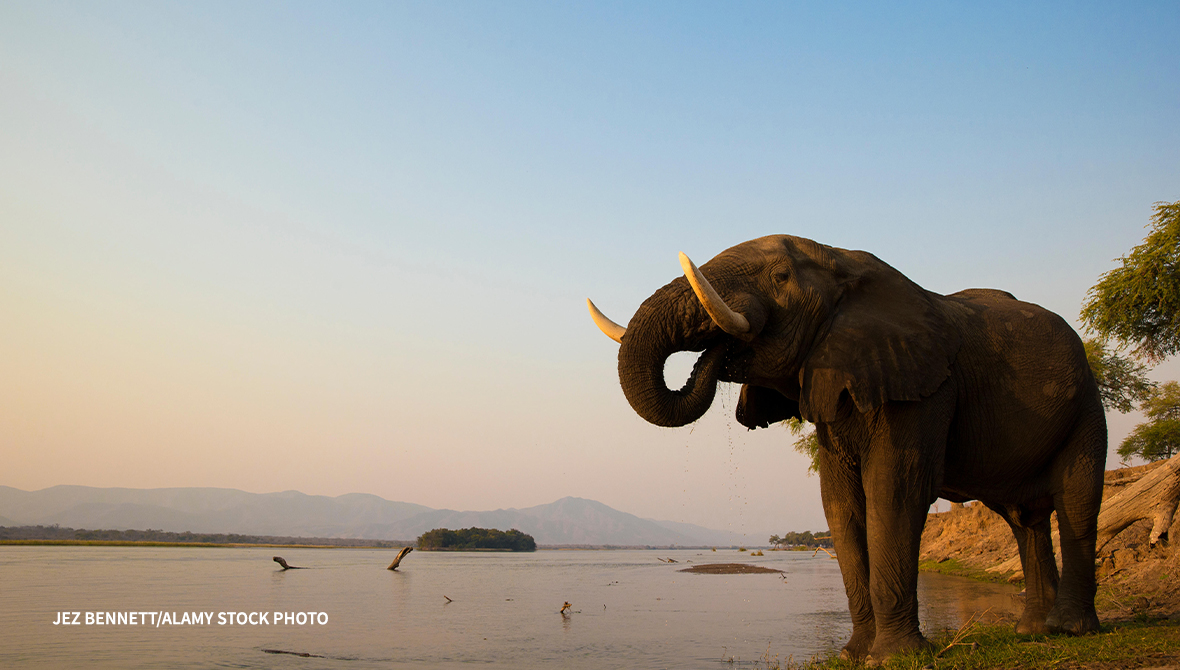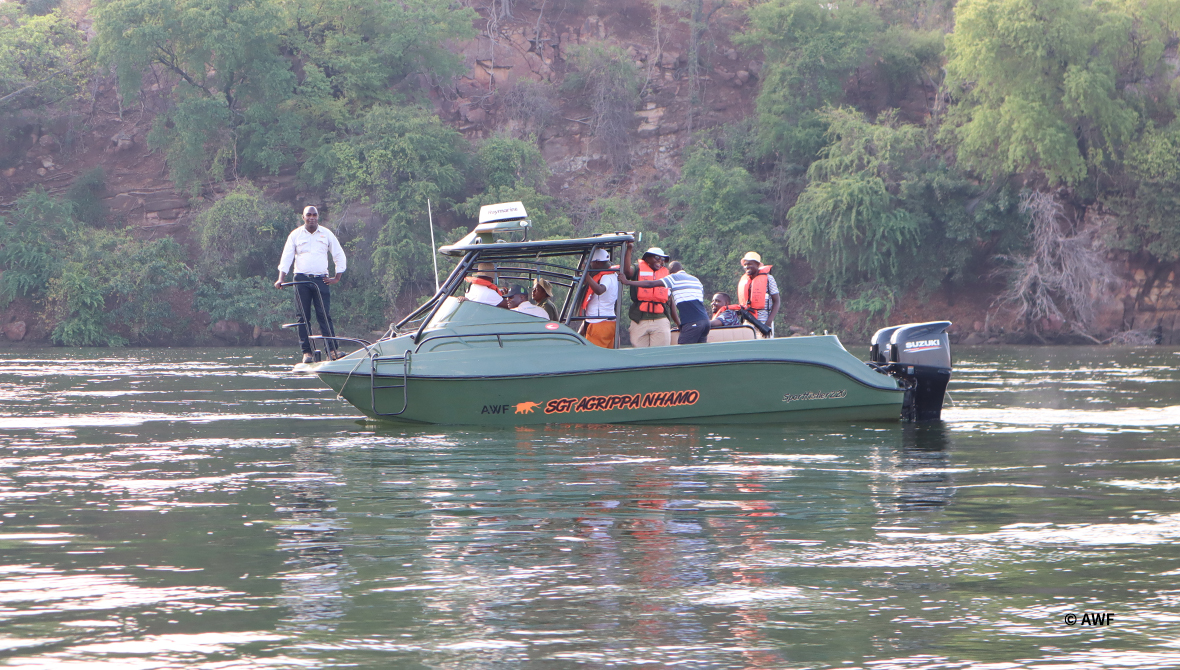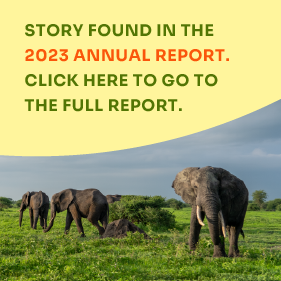AWF Investments in Mid-Zambezi Valley Have Lasting Conservation Results

The Zambezi River is a lifeline for elephants and other wildlife.
In May 2023, Zimbabwe and Zambia signed the Lower Zambezi Mana Pools Transfrontier Conservation Area Memorandum of Understanding, formalizing processes to collaborate on conservation management affecting two parks, the Lower Zambezi National Park (Zambia) and Mana Pools National Park (Zimbabwe). The parks share the Zambezi River as a boundary.
Leading up to, and in support of, the MOU, AWF in partnership with Zimparks (Zimbabwe’s protected area authority) played a major role in encouraging collaboration in the region. This included organizing and funding cross-border programs to curb elephant poaching and developing strategies to improve community relations with protected area authorities and manage human-wildlife conflict. As part of this effort in June 2023, AWF facilitated discussions between traditional leaders in the Middle Zambezi Valley to explore ways of reducing conflict and determine how to operationalize conflict mitigation plans in the landscape. One outcome was the establishment of a regional human-wildlife conflict mitigation steering committee comprised of four chiefs from across the region and representatives from Zimparks, rural district councils, law enforcement, the private sector, and NGOs, including AWF.
During the course of the AWF-Zimparks partnership, AWF has invested in anti-poaching equipment, built camps and a vehicle maintenance garage, provided transport, and supported wildlife crime investigations and ranger training for Mana Pools National Park and adjacent protected areas. The work has been supported by several key funders, including the CITES Monitoring the Illegal Killing of Elephants (MIKE) program, the Dorothy Batten Foundation, the European Union, and the Swedish International Development Cooperation Agency (SIDA).

The Zambezi River Specialized Anti-Poaching Unit patrols the wildlife-rich river to deter wildlife crime with funding support from AWF. AWF’s Simon Muchatibaya co-manages the unit.
One major outcome of the partnership with Zimparks was the formation of the Zambezi River Specialized Anti-Poaching Unit in 2020, staffed by Zimparks rangers and co-managed by AWF’s Simon Muchatibaya. Under Simon’s leadership, AWF closed out FY23 by supplying Mana Pools rangers with essential training and equipment and making infrastructure improvements to the park.
FY23 efforts included the launch of a digital radio system throughout the park and the drilling of a freshwater borehole for one of the park’s camps, Chewore South, as rangers there did not have access to clean water (work was finished in FY24). AWF also began the installation of a water purification plant for the borehole.
Other AWF support initiated in FY23 included ranger training on the use of GIS monitoring systems and the provision of equipment such as handheld GIS devices, TV screens for operations rooms, and laptops for data capture. As a result, all ranger stations in the Zambezi Valley now have adequate tools to collect field data and trained field data managers. To increase the usability of that data, AWF supported and spearheaded the development of a standardized field data collection model for use across the Mid-Zambezi Valley.
FY23 marks the fourth year Zimparks reported that no elephants were poached in the conservation area.
To complement investment in park rangers, AWF supported community scouts working outside Mana Pools National Park in a variety of ways. One was through a program that supplied women community scouts with training, monthly allowances, and patrol rations. Many of these rangers are single mothers or widows. The financial support allowed them to invest in small nature-based business ventures to supplement their ranger income, build up their savings, and construct better homes. AWF also trained scouts on ecological monitoring, data collection, problem animal management, and human rights-based approaches to conservation. Anti-poaching results have included an increase in recoveries, detections, and arrests facilitated by community scouts working with ZimParks rangers.
